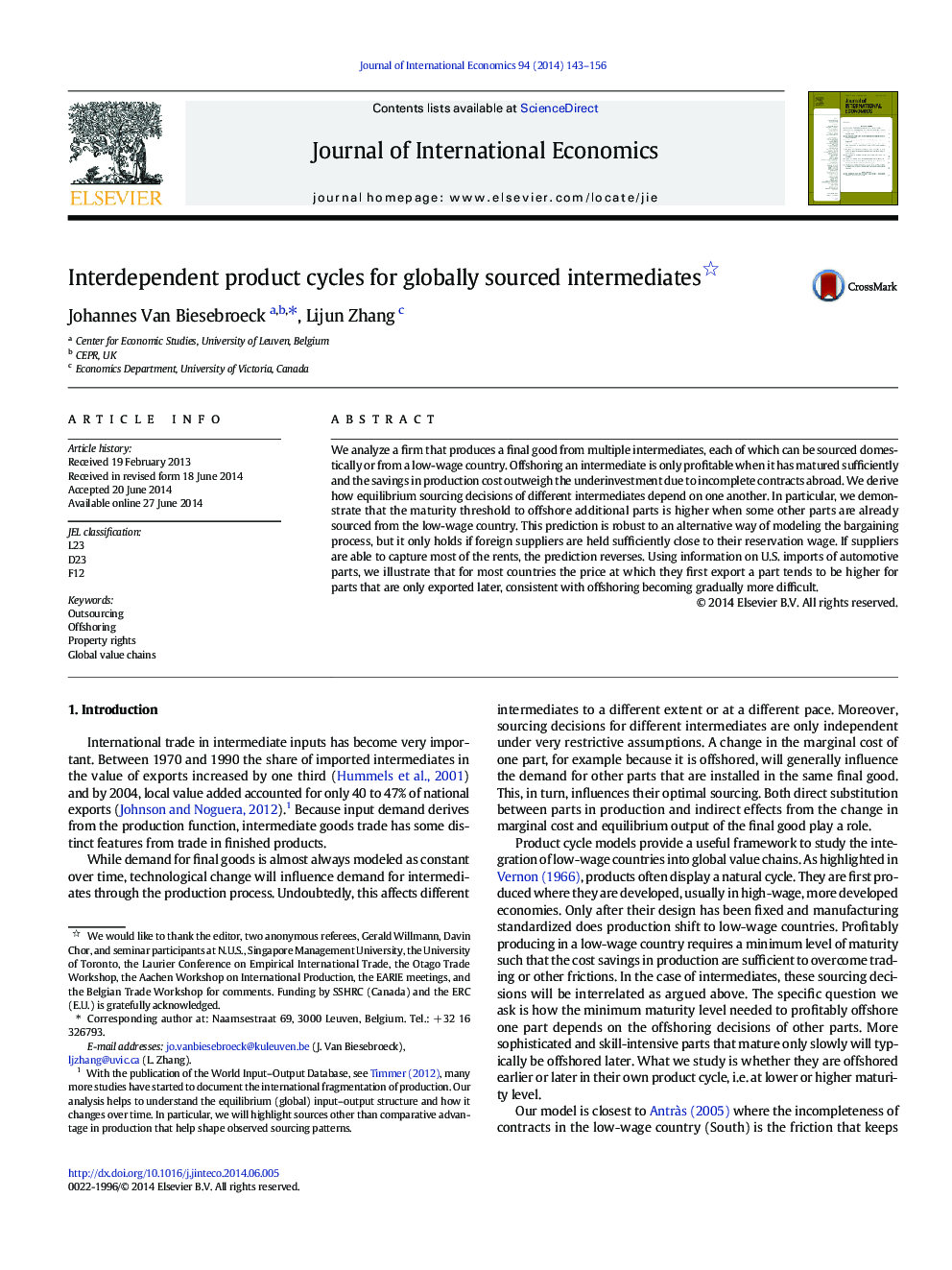| Article ID | Journal | Published Year | Pages | File Type |
|---|---|---|---|---|
| 962585 | Journal of International Economics | 2014 | 14 Pages |
Abstract
We analyze a firm that produces a final good from multiple intermediates, each of which can be sourced domestically or from a low-wage country. Offshoring an intermediate is only profitable when it has matured sufficiently and the savings in production cost outweigh the underinvestment due to incomplete contracts abroad. We derive how equilibrium sourcing decisions of different intermediates depend on one another. In particular, we demonstrate that the maturity threshold to offshore additional parts is higher when some other parts are already sourced from the low-wage country. This prediction is robust to an alternative way of modeling the bargaining process, but it only holds if foreign suppliers are held sufficiently close to their reservation wage. If suppliers are able to capture most of the rents, the prediction reverses. Using information on U.S. imports of automotive parts, we illustrate that for most countries the price at which they first export a part tends to be higher for parts that are only exported later, consistent with offshoring becoming gradually more difficult.
Related Topics
Social Sciences and Humanities
Economics, Econometrics and Finance
Economics and Econometrics
Authors
Johannes Van Biesebroeck, Lijun Zhang,
